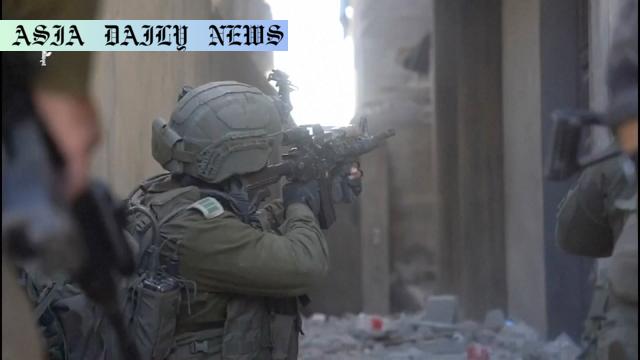Gaza – The Israeli military’s major ground operation in the Gaza Strip involves ground troops alongside intensive airstrikes, escalating the crisis.

The Start of a New Chapter in Gaza
The Israeli military has intensified its operations in the Gaza Strip, launching a comprehensive ground offensive whilst simultaneously conducting aggressive airstrikes. The escalation aims to dismantle Hamas, with reports of dozens of fighters being neutralized and key infrastructure targeted. The devastation is amplified by the high toll on civilian lives, as over 100 fatalities are reported daily. With the region’s health care facilities overwhelmed, hospitals are struggling to keep up with the constant influx of casualties.
The Humanitarian Crisis Deepens
The humanitarian crisis in Gaza has reached an alarming peak. Blocked humanitarian aid since March has left over two million residents in dire need of essentials like food and medicine. Although the Israeli government has allowed a limited amount of food supplies, skepticism remains about whether these provisions will adequately serve an embattled and resource-starved population. Hospitals like those in Khan Younis bear witness to a mounting tragedy, with makeshift medical care often being the only available option for critically injured individuals.
The Broader Geopolitical Implications
As Gaza’s conflict intensifies, international observers are raising concerns about its broader implications. The continuous clashes between Israeli forces and Hamas fighters not only escalate tension in the Middle East but also risk drawing international attention to an already fragile geopolitical environment. Many world leaders are calling for immediate interventions to prevent further loss of life and to ensure humanitarian aid safely reaches those who need it most.
The Path Forward
The road ahead for Gaza remains uncertain. With ongoing airstrikes, ground incursions, and a struggling infrastructure, the immediate priority is providing humanitarian support. However, to achieve lasting peace, comprehensive diplomatic negotiations that address the fundamental roots of the conflict are necessary. The international community must play an active role in mediating dialogue and ensuring that measures to safeguard civilians are implemented.
Commentary
Reflecting on the Tragedy in Gaza
The latest developments in Gaza are a stark reminder of the human cost of long-standing conflicts. The reported daily casualties are not just statistics but represent countless shattered families and communities. Watching the images of children being rushed to hospitals underscores the gravity of the situation and calls for immediate humanitarian interventions. Empathy and compassion must lead the response as international efforts intensify to mitigate further loss of life.
The Responsibility of the Global Community
While the local parties involved bear the weight of responsibility in resolving the conflict, the international community cannot turn a blind eye. Nations with influence and leverage must come together, not just to provide immediate relief but also to facilitate meaningful peace discussions. Merely allowing limited aid into Gaza is insufficient when millions continue to face daily bombings, shortages, and isolation. The world must advocate for sustainable peace and rebuilding in the region.
Hope Amidst the Crisis
Despite the grim realities, hope persists. The resilience of the people of Gaza, their unwavering determination to survive and support each other, serves as an inspiration. It is imperative that global citizens keep the struggles of Gaza in their hearts and voices. Every effort counts, from spreading awareness to urging governments to act responsibly. Collectively, humanity can contribute to alleviating suffering and building bridges toward a peaceful resolution.


